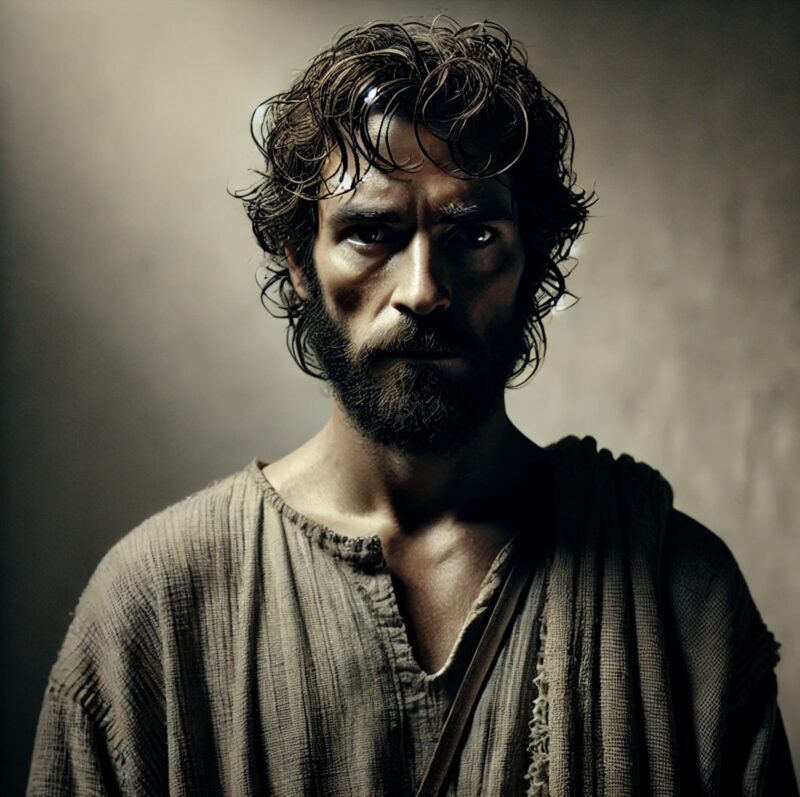
The Ascension
Lately I’ve dipped into literary depictions of the Savior’s life. Unsurprisingly given the subject matter, historically responses to literary depictions of the Savior have been quite polarizing, and sometimes controversial. For example, evidently The Man Born to Be King, an early, relatively milquetoast (by today’s standards) radio depiction of the Savior’s life, was blamed for the fall of Singapore. Gradually fictional depictions of the Savior moved from being more devotional–like Ben Hur–to the more naturalistic, like the Master and the Margarita, The Gospel According to Jesus Christ, Quarantine, King Jesus, and The Good Man Jesus and the Scoundrel Christ. A funner entry in this genre is Lamb: The Gospel According to Biff, Christ’s Childhood Pal.
In principle I’m not opposed to naturalistic depictions of the Savior. However, most cases simply fail to really capture the subtle ineffability, the quiet, almost secretive dignity of the figure that even non-believers can grasp (Albert Einstein: “No one can read the Gospels without feeling the actual presence of Jesus. His personality pulsates in every word.”) In many cases I feel like the novelty of naturalistically depicting Jesus or some clever literary gimmick (e.g in the Good Man Jesus and the Scoundrel Christ has Jesus as a different person than Christ) carries a lot of the weight in justifying the schlog through the novel.
There are also the slightly modified retellings, here Charles Dickens’ The Life of Our Lord comes to mind. Another good one is a brief description of the Savior’s life in Unapologetic: Why, Despite Everything, Christianity Makes Surprising Emotional Sense, written in such a way so as to not cue people towards the imagery and themes about Christ that make his story so well-worn that we gloss over the details.
I imagine the real difficult thing is to try to thread the needle by capturing some of the Savior’s spirit while also employing some creative license. While the Savior is silent throughout, Dostoevsky’s “The Grand Inquisitor” chapter of The Brothers Karamazov is the GOAT here, and is required, read-it-tonight-if-you-haven’t level reading. And, this will be more contentious (since the title brings to mind the highly controversial film version), The Last Temptation of Christ was surprisingly devotional (at least the last part that I read) in taking seriously and expounding on the very real temptation Christ faced in simply pulling the plug and letting the cup pass from him. And finally, our own James Goldberg’s The Five Books of Jesus fits in this tradition.
Some try to tap into that subtle-but-powerful feel of the Savior from the gospels by not addressing him in the first person, but by putting some space between Him and the primary characters, in a sense not allowing the mystique to vanish away from getting too close. For example, the Newberry Award-winner The Bronze Bow is from the perspective of a local Jewish boy, Barabbas by Literature Nobel Prize winner Pär Lagerkvist from the perspective of “the acquitted one,” (later turned into a movie) and The Testament of Mary from his now-pagan mother’s perspective.
Barabbas is particularly interesting because nearly every other New Testament figure has some kind of post-New Testament folklore or legends about them, hardly anybody is just allowed to sink back into history and go back to mending their nets, they all had to die glorious deaths in some foreign land, even though the way God works the former is probably more likely. As far as I can tell Barabbas has few or no such legends. He simply ignominiously disappears from all speculation after his acquittal (of course I’m open to correction on this point).
Barabbas is devotional but nuanced. While it would be tempting for the acquitted one, the one person who was very physically redeemed from imminent death by the Savior, to find Jesus and become a Paul, his tortured journey is more along the lines of Kichijir, the often-lapsing Christian who serially apostates and then repents throughout his life in the book and movie Silence. Barabbas returns to his old ways of fornicating, slitting innocent throats, and raiding caravans, but almost imperceptibly drifts towards Christianity as the book progresses, and is again physically “redeemed” when he renounces Christ and avoids crucifixion, only to be crucified for his Chrisitanity in the end after the burning of Rome (yes, yes, I know, suspend disbelief about timelines for a moment), apart and alone from the other dying Christians who will not converse with their infamous coreligionist.

Prompt: “Barabbas with a glimmer of Christianity.”
Finally, The Testament of Mary by Irish Booker-Prize author Colm Tóibín is quite well written (and in coming in at 96 pages, is digestible for us millennials), and I’ll close by quoting moving, interesting, and/or poetic passages.
***.
All my life I have loved the Sabbath. The best time was when my son was eight or nine, old enough to relish doing what was right without being told, old enough to remain quiet when the house was quiet. I loved preparing things in advance, making sure that the house was clean, beginning two days before the Sabbath with the washing and dusting and then the day before preparing the food and making sure that there was enough drinking water. I loved the stillness of the morning, my husband and I speaking in whispers, going to my son’s bedroom to be with him, to hold his hand and hush him if he spoke too loudly, or if he forgot that this was not an ordinary day. The Sabbath mornings in our house in those years were placid mornings, hours when stillness and ease prevailed, when we looked inside ourselves and remained almost indifferent to the noise the world made or the stamp the previous days had left on us.
***
Marcus said that he stood close to the pool close enough to see that the focus of attention was this idiot, half beggar, half imbecile, who was roaring out that he had been crippled for many years. Marcus heard my son as everyone around came closer. “Wilt thou be made whole?” he was shouting. Some were laughing and doing imitations of his voice, but others were beckoning even more people to move silently towards the voice at the centre, near the pool, the voice booming “Wilt thou be made whole?” And the idiot began insisting that the angel was coming to trouble the water, but because he had no servant to help him, and only the first in the water could be cured, he was doomed to remain immobile for the rest of his days. And the voice rose up again, and this time no one laughed or mocked. There was complete silence from all around as this time the voice said “Take up thy bed and walk.”
***
“I know,” she said, “that even now that he is four days in the earth, you have the power to raise him.”
“He will rise,” my son replied, “as all mankind will rise, when time relents, when the sea itself becomes a glassy stillness.”
“No, said Martha, “you have the power to do it now.”
***
“Where is my son?”
“Close to Jerusalem. The site for the crucifixion has been chosen. It will be near the city. If there is any chance for him, it will be there, but I have been told that there is no chance and that there has been no chance for some time. They have been waiting.”
I had seen a crucifixion once, carried out by the Romans on one of their own. It was in the distance and I remember thinking that it was the most foul and frightening image that had ever been conjured up by men. I remember thinking also that I was old and getting older and that I hoped I would die before I ever saw anything like that again. It stayed with me, the sight in the distance, and it made me shiver and I had tried to think of another subject to obliterate the memory of this, the unspeakable image, the vast, fierce cruelty of it. But I did not know precisely how the victim died or how long it took, if they used spears or tortured them while they were hanging there or if something else, such as the hot sun, caused the body to expire over time. Of all the things I had thought about in my life it was the one that was furthest from me. It had nothing to do with me and I believed that I would never witness it again or come close to it in any way. I found myself now asking Marcus how long a crucifixion takes as though it were something surprising but ordinary too. He replied, “Days maybe, but sometimes hours, it depends.”
“On what?” I asked.
“Don’t ask,” he said. “It’s better if you don’t ask.”
***
There are times in these days before death comes with my name in whispers, calling me towards darkness, lulling me towards rest, when I know that I want more from the world. Not much, but more. It is simple. If water can be changed into wine and the dead can be brought back, then I want time pushed back. I want to live again before my son’s death happened, or before he left home, when he was a baby and his father was alive and there was ease in the world. I want one of those golden Sabbath days, days without wind when there were prayers on our lips, when I joined the women and intoned the words, the supplication to God to give justice to the weak and the orphan, maintain the right of the lowly and the destitute, rescue the needy, deliver them from the hands of the wicked. When I said these words to God, it mattered that my husband and son were close by and that soon, when I had walked home alone and sat in the shadows with my hands joined, I would hear their footsteps returning and I would await my son’s shy smile as the door was opened for him by his father and then we would sit in silence waiting for the sun to disappear when we could talk again and eat together and prepare with ease for the peaceful night after the day when we had renewed ourselves, when our love for each other, for God and the world, had deepened and spread.
This is over now. The boy became a man and left home and became a dying figure hanging on a cross. I want to be able to imagine that what happened to him will not come, it will see us and decide—not now, not them. And we will be left in peace to grow old.

Mary the Mother of Jesus as an Old Woman: “Yea, a sword shall pierce through thy own soul also.”

Comments
4 responses to “Jesus Christ as a Literary Subject”
Nice post. I support it. Just now started reading Jack Miles God: A Biography, and later will read his treatment of Jesus Christ.
Everybody has their own personal beliefs about Christ. They vary widely even among Mormons. I personally believe in Christ the rebel. He came to earth to overturn the establishment: Jewish and Roman. He lifted the image of God from harsh judge to loving father.
I’m pretty sure if Christ were to come to America today, he would be hispanic. He would be working to protect immigrants and the downtrodden. He wouldn’t look Scandinavian, he wouldn’t have blue eyes and blond hair. He would be a social activist.
You can’t write a superintelligence. Not a real one at least.
I dabble in the AI security and rationalist spheres, mostly as a game if I’m honest. Playing chicken with the infohazards. There are people on LessWrong who got so broken they think we should nuke China in order to save the human race (what will be left of it after that exchange) from a world with AI. You can break your brain over there.
One thing that gets bandied around is that superintelligence will be Lovecraftian, we simply will not be able to follow it, it couldn’t explain itself to us if it tried. Subtleties in language, math, and simple observation of which we cannot concieve will be glaringly obvious and salient to it. It will be the ultimate rhetor, the ultimate logician, and its ways will be mysterious to us mere mortals. All of that seems reasonable enough given rationalist priors, but it occurs to me that we met superintelligence long ago in Galilee, and He told us to judge a tree by its fruit. He prayed in tongues that cannot be written and wept at the tomb of Lazarus.
I think the error of the rationalists is that they tie truth to symbolic representation. Christ had no truck with it. His was a continual cry of “come and see”, calling all to see Him and see the Father. Joseph Smith remarked that anyone who looked into heaven for a few minutes would know more than all the books ever written on the subject. He said nothing about celestial narration. To know as Christ knows is embodied, visual, beyond the power of the symbolic. We will not be able to describe Him. We will only be able to see Him as He is.
Announcement: TS had some issues so we rebooted it and lost some comments, sorry.